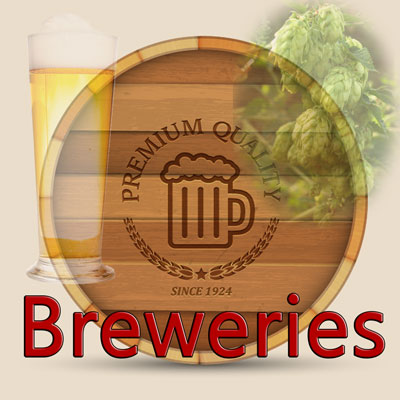Muscadet wine
The Muscadet wine is a popular French beverage that is most popularly produced in the Loire valley near the city of Nantes in the district of Pays de la Loire.
It is made from the Melon de Bourgogne grape, usually known in French as simply melon.
In France, wines are named according to several appellations, however, the Muscadet is an exception.
The wine is characteristic of the melon, grape family that produces it, that in French, is mostly described as vin qui a un gout musque, meaning ‘the wine with musk like flavour’.
The melon, grape that produces it has origins in the 7th century, although its history is not that well documented.
Other than being a favourite French wine, the Muscadet comprises of three more sub variations of Muscade-Sevre et Maine, Muscadet-Coteaux de la Loire and the Muscadet-Cotes de Grandlieu, all according to the regions they are produced in, namely the Maine, Loire and Grandlieu regions.
History of Muscadet
The region where Muscadet is mostly produced has had an ancient association with winemaking.
Romans cultivated vines here and that can be seen by several edicts established by Emperor Probus who is credited to have established the first vineyards here through his soldiers.
This, however remains unclear as to the exact association of Muscadet wine with Melon grape.
Melon’s proper origins are themselves a point of debate among many ampelographers but there are evidences that point out that the grape was transported from Burgundy in 1740.
A Dutch trader found these grapes to be of good quality to produce neutral, white wines and found a place here in Pays Nantes.
The French Monarch King Louis XIV ordered the planting of the grape himself, following the deep freeze of 1709 and described it as Muscadet Blanc that most ampelographers associate it with Melon de Bourgogne.
The wine being very natural, started losing its flavour among wine community far too quickly than was expected, but saw a revival in production following efforts by several winemakers to experiment with modifications in the production process and of course, blending with other grape varieties that made it possible to produce quality Muscadet wines without compromising with its core characters.
In the 1980s, winemakers in the Nantes region started for the first time, oak aging for the Muscadet that allowed to modify even further the wine’s characters that resulted in a lot of Muscadet modifications one can observe in the region highlighted.
Viticulture
The Muscadet wine is produced from the Melon grape. The region being mildly cold and located quite near to the seashore exhibits some viticulture hazards because of the humidity the sea brings in.
Acidity is the key to develop ideal wines, however the winter and spring seasons bring with them new hazards that winemakers need to be attentive towards.
The harvest of this grape is normally around mid to late September and produces some early budding characteristic like high acidity.
Picking is however done much later so as to develop sugars and riper phenols that exhibit fruity notes with a milder touch.
Winemaking
Because of a relatively neutral touch the Melon grape exhibits, the winemaking process of Muscadet is highly modified and adapted according to the grape’s limitations it exhibits.
These modifications are a result of almost two centuries of experimentation and modifications that comprise of some really unique processes, not really followed with other grape varieties.
One such technique is the process of sur lie aging process where the wine is kept in contact with dead yeast cells to produce enzymes that prohibit aging process through inhibition of the oxidizing factors.
This also increases the aging potential of the wine. Accidentally discovered in the early 20th century, the process is now commonly followed.
Other such techniques involve longer oak processes that allow the wine to go in for a number of complex chemical processes like tannin based reaction that allow the wine to develop fruitier characters.
Extended maceration also allows leach more phenolic compounds that add fine complexity to the wine.
Food pairing
Muscadet due to its close proximity to the western shore of France goes very well with the local seafood.
It has, since its origins, modified and experimented to go with the best local cuisine.
The Nantes region is rather a peaceful, cornerstone district, away from the hustle and bustle of central France, around Paris so this wine needs to be enjoyed peacefully and with mild food.

Michael Bredahl
Wine Writer
Michael is an online enthusiast, with a lot of knowledge about online marketing. Traveling around the world to hunt for the perfect wine. Latest on Sicily, where Etna has a huge impact on the taste, which is strong with a bitter aftertaste for the youngest wines, but older wines are fantastic. Drinking wine, and writing about them, are one the passions. Remember to drink responsibly 🙂
Are you a Copywriter?
We have a lot of articles without much content, if you can do it better, you are welcome to write a nice article, and get the proper credit for that. Read more information about beeing an author, and Contact us for more information.
















0 Comments